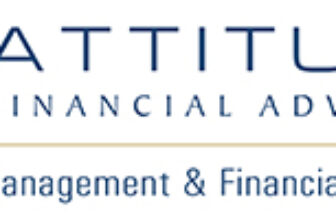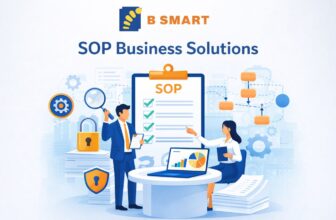
Nowadays, businesses working with digital transactions must simplify and secure the payment processing for them to continue being competitive and gain new customers. According to Statista, by 2025, the market for global digital payments will total $20.37 trillion growing at a compound annual growth rate of 15.90% to 2029. PwC projected that world cashless payments will grow by 80% between 2020 and 2025 to nearly double to 1.9 trillion transactions. With this expansion, choosing the right payment gateway is critical to efficiency, brand trust, and customer satisfaction. In this article we are going to find out which payment gateway solution will better fit for different types of businesses and provide tips on how to choose the proper solutions for your needs.
Understanding Payment Gateway Difference
Businesses typically have two main options, basic payment gateways, typically available by subscription and white-label payment gateways, as the customised solutions, made according to the needs and activities of specific businesses. Generally, the customer range for both solution types seems as follows:
Basic Payment Gateway
For small businesses that need a quick, low-cost way of processing payments.
White-Label Payment Gateway
A white-label solution for businesses that want to accept payments on their own name, with full control and scalability.
Choosing an appropriate payment gateway affects transaction success rates, customer satisfaction, and overall operational efficiency.
Key Factors to Consider When Choosing a Payment Gateway

Security & Compliance
- PCI DSS Certification
To meet industry security standards and protect sensitive financial information from fraud and breach.
- Data Encryption
To protect transactions by encrypting sensitive information, constraining cyber attacks and unauthorised access.
- Fraud Prevention Tools
To detect and block fraudulent transactions even before their occurrence.
- Tokenisation & Authentication
To ensure secure payment processing by replacing sensitive data with unique identification tokens to prevent direct exposure of financial data.
Integration & API Support
- Seamless Platform Integration
Gateway must offer easy integration with e-commerce sites, ERP, and CRM software to enable effortless financial transactions.
- Secure API & Developer Support
APIs facilitate companies to integrate the payment gateway according to their specific business operational requirements.
Payment Medium Availability
- Credit & Debit Card Acceptance
To enable business acceptance of leading cards globally.
- Digital Wallet Inclusion
Enabling payment mediums such as Apple Pay, Google Pay, and PayPal, to access more buyers.
- Alternative Payment Modes
Including channels such as Buy Now, Pay Later, bank transfers, and cryptocurrency payments.
- Multi-Currency Payments
Ensuring cross-border payments seamlessly, enabling enterprises to reach customers anywhere.
Speed & Reliability of Transactions
- High Uptime & Performance Guarantees
Reliable gateways ensure continuous transaction processing with reduced downtime and declined transactions.
- Rapid Payment Processing
Low latency and high approval reduce time to authorise and settle funds.
- Smart Payment Routing
Routes transactions through the best-performing channels, achieving highest approval rates and lowest costs.
Customisation & Branding
- Tailoring Capabilities
Empowering customisation of payment gateway to allow trust and consistency in branding.
- Custom Checkout Experience
Ensuring merchants to customise UX and UI of checkout experience based on shopper behaviour in an attempt to boost conversion rates.
- Personalised Payment Flows
Empowering businesses to customise payment flows according to industry needs for one-time or recurring billing cycles.
- Customised Payment Features
To address the specific needs of the business, according to the industry, market, and personal business goals.
Who Needs a White-Label Payment Gateway?
A white-label payment gateway best suits businesses that focus on personal brand, customisation at a granular level, and operation control. Typically, the industries that benefit the most from these are given below:

E-commerce Websites
Their customers prefer seamless transactions of the same nature without redirects to third-party gateways. Huge e-commerce players process thousands of transactions every day, with their primary concern being reliability and security. For example, a multi-vendor e-commerce site with international borders that wants to facilitate multiple payment methods under a consistent brand experience is more likely to choose white-label solution.
Fintech and Financial Services
Fintech companies often need integrated payment capabilities to enhance their service offers. PCI DSS Level 1 compliance, fraud prevention, and management of compliance are non-negotiable in financial services. Among businesses, prefer a tailored gateway are online lending platforms or neobank that want to process transactions in-house with no third-party branding.
Large Retail Chains and Marketplaces
Payment processing across many countries must be effortless. A branded checkout experience translates to higher conversion rates and brand confidence. For example, a retail giant expanding new international markets, which requires payment solutions linked to multiple local banks and financial institutions.
Subscription-Based Companies
Customised, automated billing cycles reduce churn and optimise customer retention.
Subscription companies are exposed to fraud and require advanced risk management tools. A SaaS company or a video streaming service are more likely to look for an automated and scalable billing solution for these reasons.
Who Can Benefit from a Simple Payment Gateway?
For businesses with minimal customisation needs, a simple payment gateway provides an economical, plug-and-play solution. The sectors that can gain the most advantages are as follows:
Small Businesses & Startups
Small businesses typically require a straightforward plug-and-play solution to start accepting online payments as soon as possible. Branding is not required, and an out-of-the-box payment page will suffice. For example, a web shop of handcrafts with a minimal checkout process.
Solopreneurs
Solo-entrepreneurs and freelancers need simple invoicing and single payment collection with no extra bells and whistles.: What matters most is the simplicity of payment acceptance, not branding coherence. That is why, businesses like online payment of consulting or graphics design services are more likely to choose a simple payment gateway.
Local or Small-Scale Retailers
A basic payment gateway is sufficient for local shops with frequent transaction volumes, as there is no need to install within the IT department or integrate into complex gateways. For example, a local bakery that offers goods from an online company.
Now let’s analyse a real case, showing how choosing a proper payment gateway solution helped business to increase the efficiency and gain more profit.
Case Study
One of the leading Europe subscription entertainment companies had ambitions to expand into the Middle East region. However, there were a couple of things that would have slowed them down.
The company was already working with third-party payment gateways, but they had concerns on their efficiency at the new market. There was a lack of consistent branding that was compromising the trust of the service. Also, the company required the custom payment features development, to address their specific needs and overcome the competitors. High transaction fees were negatively influencing profit, and low integration availability of local payment methods was causing low conversion rates. They required a solution in which they completely controlled their payment processing with guaranteed smooth experience to their users.
The business contacted Paytechlab as a company, developing payment gateway solutions for specific business needs. With their white-label payment gateway, the business was able to rebrand their payment processing from top to bottom. The gateway was multi-currency supported, allowing the business to process local payment methods required in the MEA region. Additionally, improved fraud prevention and customised payment routing optimised approval rates, reducing declined transactions and money costs.
As a result, within six months, the company had reached a 25% boost in payment conversion rates and a 15% reduction in transaction fees, thereby freeing up massive cost savings. Also their customers could have the benefit of a smoother, more streamlined payment experience, thereby allowing them to set the foundations for a strong presence in their new territory. Up to now, the company is using the Paytechlab white-label payment gateway at MEA market.
Conclusion
The proper payment gateway is vital to ensure business success, as it influences various processes businesses have. Small businesses might manage with simple payment gateways, but companies with large operations should focus on white-label payments, as they offer the personalisation, flexibility, and freedom required for business growth. That is why, business owners should explore more about the opportunities IT-companies like Paytechlab offer to ensure the high-volume operations efficiency and customer satisfaction.







